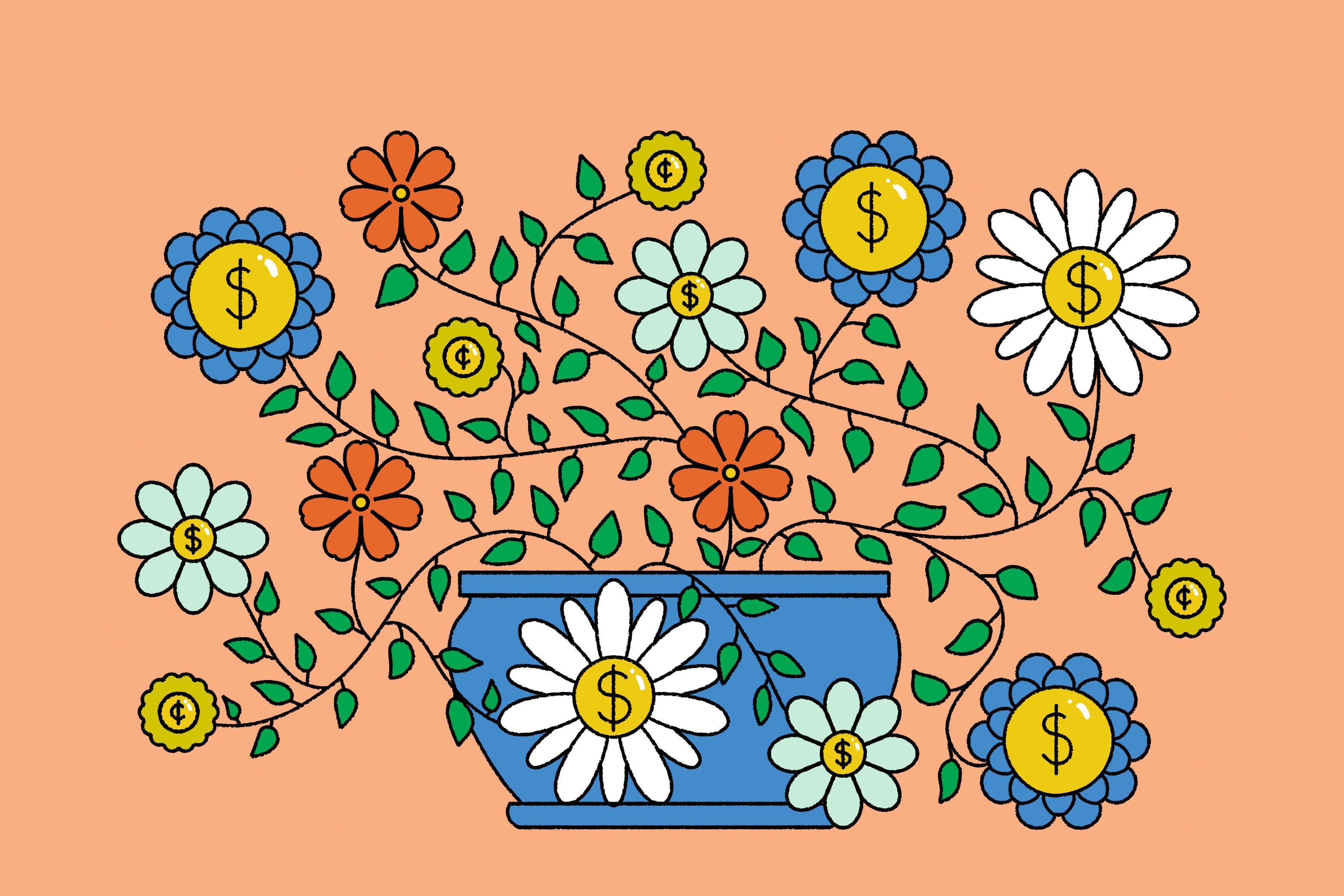For beginners, it can be a challenge to keep track of the many different options for investing, let alone the benefits and drawbacks of each kind. Here’s a rundown of some of the most common investments.
Stock
Owning stock, or shares, in a company means you own a (probably tiny) part of that company. The risk of a stock depends on the organization you’re buying into. “The stock market is for money you won’t need for 10 years or more,” says Carrick, who adds that it’s not a good idea to try and time the market’s ups and downs. That said, stocks are easy to sell when you want to.
GIC
A GIC, or guaranteed income certificate, is an investment that offers a guaranteed amount of income over a specific amount of time; for instance, you might buy a GIC that will give you a 2 per cent return after one year. GICs are considered low-risk, but many require locking the money away for the entire time period.
How to start investing in stocks, crypto, NFTs – and more
What is investing? A beginner's guide
Annuity
An annuity is an insurance product designed to give you a regular guaranteed income in retirement. You buy an annuity either with a lump sum or a series of payments, and the insurer in turn makes payments to you. The benefit of annuities is reducing your risk of running out of money during retirement, but keep in mind there is zero liquidity -- your funds are locked in.
High-interest savings account
High-interest savings accounts are bank accounts that offer a higher rate of return than your everyday chequing or savings account. While they are low risk and highly liquid (you can take your money out whenever you need it), they also offer fairly low earnings nowadays, as interest rates on them tend to be poor. If you want to keep some money in an account like this, it pays to shop around.
Bond
At its simplest, a bond is a loan. By buying a bond, you’re lending your money to an organization – often governments, but also companies – in return for a promise of earning a return on that money. Bonds tend to be lower risk, which is why they’re recommended as part of a diversified portfolio, but the actual risk depends on interest rates and on the organization issuing the bond. Like stocks, they are relatively quick and easy to sell.
Certificate of deposit
A certificate of deposit, or CD, is a type of savings account offered by financial institutions. It offers a higher rate of interest than a standard account in return for the funds being locked in for a certain period of time. CDs are considered low-risk.
ETF
ETF stands for exchange-traded fund. An ETF is a group of securities (stocks or bonds, for example) that are sold as a bundle keyed to a particular index or theme. For example, you might purchase shares (or units) in an ETF that tracks the Canadian market, or one that is SRI oriented, or focused on a specific type of investment such as cryptocurrency or gold. An ETF’s level of risk depends on its holdings, and it is considered highly liquid.
REIT
A real estate investment trust, or REIT, is a public company that owns, finances or operates income-generating real estate. You can buy shares in a REIT like you would buy stocks or ETFs. Levels of risk depend on the particular REIT. Most REITs are sold on the stock market and are therefore easy to sell.
Mutual fund
Like an ETF, a mutual fund is a portfolio of securities grouped in a convenient package. They tend to have higher fees as they are often directly managed, and might include investment advice. Their risk level depends on their holdings, and money is generally not locked in.
Cryptocurrency
The word cryptocurrency comes from its two parts: currency, meaning that it is a form of currency like the dollar or euro, and crypto, meaning that transactions are secured using cryptography. Cryptocurrency is digital only and is generally seen as high risk.
Real estate
While you might buy property to live in, many Canadians also see it as an investment: an asset that will grow in value. This might be your own home or a property that you own and rent out to others. Is it risky? That’s up for debate. But like stocks, real estate is probably a better investment over longer time horizons.

Investment tracking
Create an investment tracker for stocks, mutual funds and more with Watchlist tool or use the Portfolio Tracker for stocks and mutual funds.